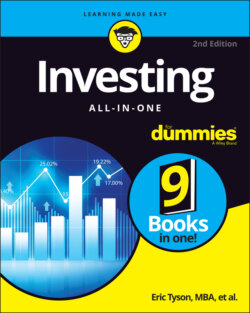Читать книгу Investing All-in-One For Dummies - Eric Tyson - Страница 147
Understanding why certain dates matter
ОглавлениеOne business day passes between the date of execution and the closing date. One business day passes between the ex-dividend date and the date of record. This information is important to know if you want to qualify to receive an upcoming dividend. Timing is important, and if you understand these dates, you know when to purchase stock and whether you qualify for a dividend.
As an example, say that you want to buy ValueNowInc (VNI) in time to qualify for the quarterly dividend of 25 cents per share. Assume that the date of record (the date by which you have to be an official owner of the stock) is February 10. You have to execute the trade (buy the stock) no later than February 8 to be assured of the dividend. If you execute the trade right on February 9 (the ex-dividend date), you will not qualify for the dividend because settlement will occur after the date of record.
But what if you execute the trade on February 10, a day later? Well, the trade’s closing date is February 11, which occurs after the date of record. Because you aren’t on the books as an official stockholder on the date of record, you aren’t getting that quarterly dividend. In this example, the February 9–10 period is called the ex-dividend period.
Fortunately, for those people who buy the stock during this brief ex-dividend period, the stock actually trades at a slightly lower price to reflect the amount of the dividend. If you can’t get the dividend, you may as well save on the stock purchase. How’s that for a silver lining?
